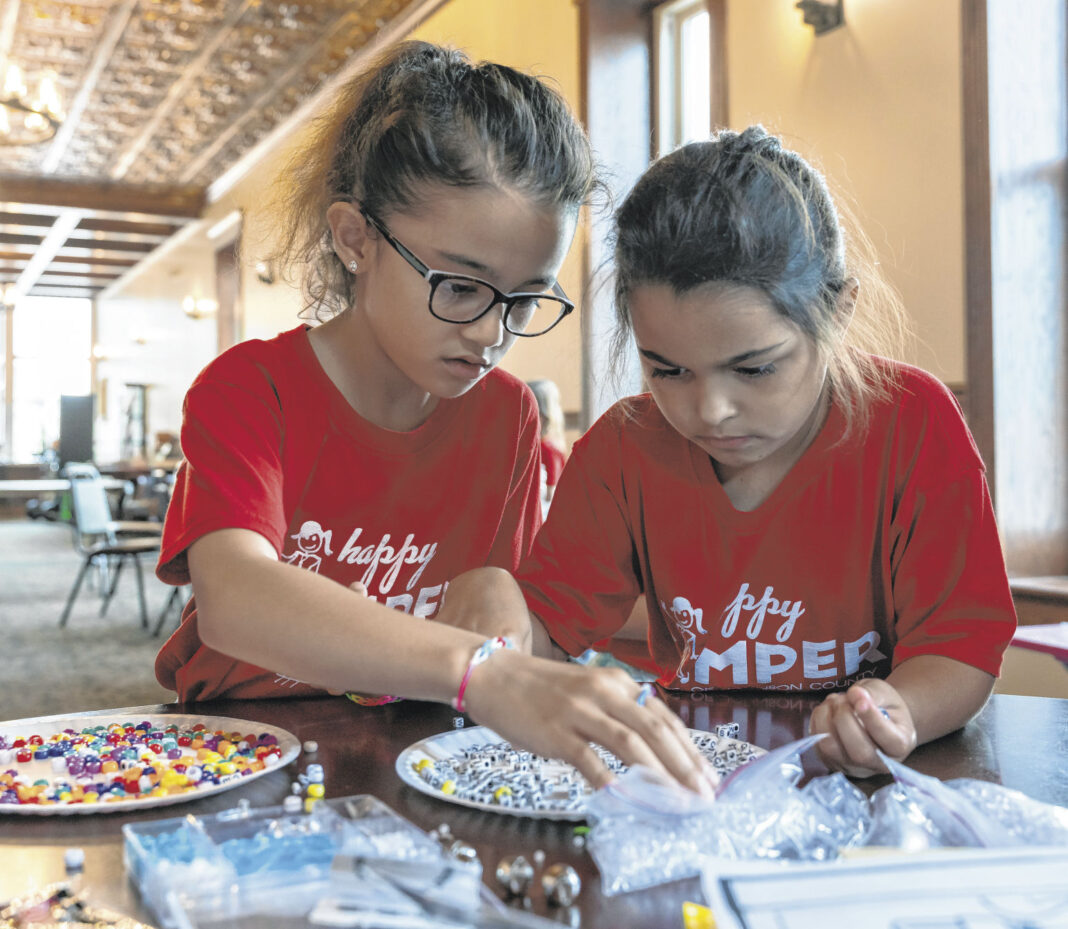Area students have been on a rollercoaster for 16 months.
Young people have had to endure virtual learning, schedules in flux, and the cancellation of extracurricular activities. Routines changed week by week, and sometimes day by day.
Now, faced with the return of entirely face-to-face school this fall, mental health experts are hearing that more and more kids are terrified and anxious.
To help address this in advance, mental health agency Reach for Youth and the United Way of Johnson County for the past two months presented a program offered to young people at local summer camps. The Summer Camp Enrichment Series featured social-based trainings that help youth and parents deal with the impact of the pandemic.
Kids learn to address their feelings, as well as receive tips on how to cope when those emotions threaten to overwhelm them.
“It’s a growing concern globally with educators, with students returning back to school — there are these delays in social and emotional learning, as a result of isolation of their normal social interaction routines,” said Chris Ponti, teen court director for Reach for Youth. “That’s why we’re working with them, so they can acquire these skills and put them into practice.”
Just as it did for everyone, the pandemic had a profound effect on the mental health of children.
According to the National Poll on Children’s Health taken by C.S. Mott Children’s Hospital in January, 46% of parents revealed they have noticed new or worsening mental health conditions for their teen. The poll reported that 36% of teen girls and 19% of teen boys had worsening anxiety or worry since March 2020.
Sleep issues, depression and aggressive behavior also increased, according to the poll.
“Although serious illness from COVID-19 is uncommon among teens, the changes brought on by the pandemic have wreaked havoc on their lives,” the poll report stated.
Even younger children have been affected. Research by the Jed Foundation, a nonprofit focused on mental health and suicide prevention, reported that 31% of parents said their child’s mental or emotional health was worse than before the pandemic. Children were exhibiting increased irritability, clinginess and fear, and have had issues with sleeping and poor appetite.
The concerns were repeated over and over as Johnson County agencies worked with families struggling during the pandemic. Clearly, something was needed to address the issue, said Nancy Lohr Plake, executive director of the United Way of Johnson County.
“It’s really looking at kids, and where they’re at, and what their feelings are,” she said. “This is something the kids really need right now.”
When Indianapolis philanthropic organization the Lilly Endowment offered up grants to address community issues stemming from COVID-19, the United Way of Johnson County applied. The organization was awarded $474,822, a large chunk of which went to partnering with Reach for Youth on a program addressing mental health before kids return to school.
“We were hearing a lot that kids were anxious about school. We were hearing that there’s a learning loss, so we wanted to do something,” Plake said. “Once we learned we might get this grant, we started working with Reach for Youth.”
Reach for Youth’s approach used the social emotional learning program developed nationally by CASEL — the Collaborative for Academic, Social, and Emotional Learning. Social emotional learning refers to the process by which children and adolescents acquire the knowledge, skills and proficiency to develop healthy identities, manage emotions and achieve personal and collective goals, Ponti said.
Because the pandemic disrupted that learning in the classroom over the past year and a half, a “refresher” program could help as kids go back to school, Ponti said.
“The benefits to social emotional learning starting at this young age include understanding emotions, setting and achieving goals and showing empathy for others. We talk about mindfulness, respect for self and others, and supportive relationships,” Ponti said. “Many risk behaviors, such as substance abuse, truancy, bullying, violence, things of that nature can be prevented or reduced through these efforts.”
Reach for Youth put together a series of hour-long workshops focusing on topics such as the role of emotions and how to manage them, developing healthy mindsets, empathy, healthy friendships and goals.
Since early June, Reach for Youth personnel have come to Johnson County to present the different workshops at summer camps throughout the county. The counselors made stops at a different camp each day — Girls Inc. of Johnson County, Boys and Girls Clubs of Johnson County and YMCA of Greater Indianapolis camp at Isom Elementary in Greenwood.
“It’s been really exciting seeing the collaboration, and the different agencies working together on this,” Plake said.
The camp series went through mid-July, as many of the camps were ending before the start of school. But organizers plan to extend services for young people who need it.
Reach for Youth will accept referrals from the agencies and families involved with them, if there are issues that may need additional mental health resources. A portion of the Lilly Endowment grant will also go toward providing those resources to young people and their families who need one-on-one counseling.
“We hear so much it’s brought a lot of stress on parents, teachers, schools and students. We want to make sure going into this school year, there are these resources, and being able to apply what they learned in these camps,” Ponti said.





